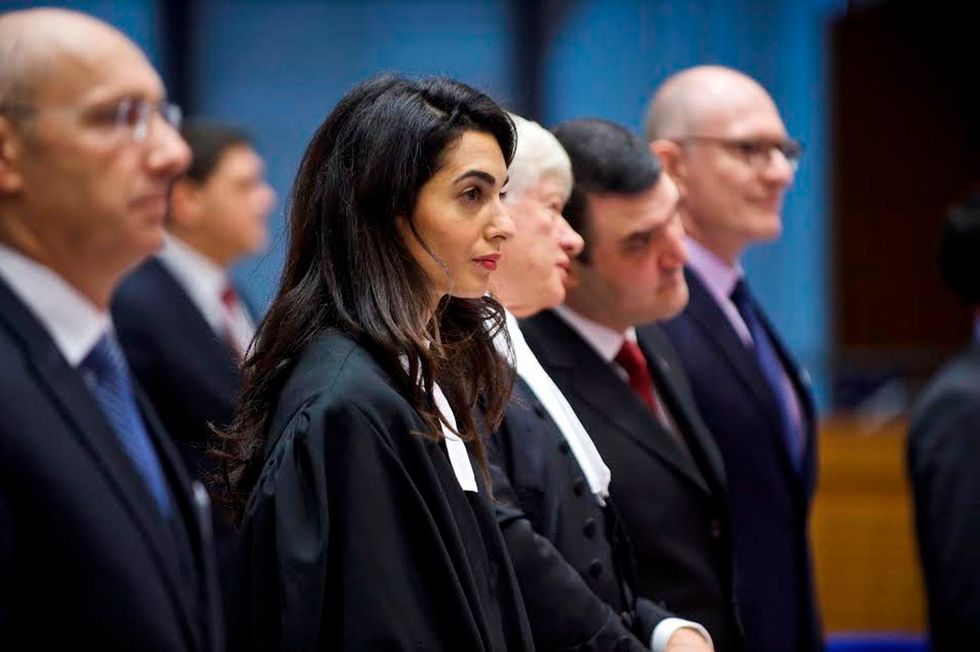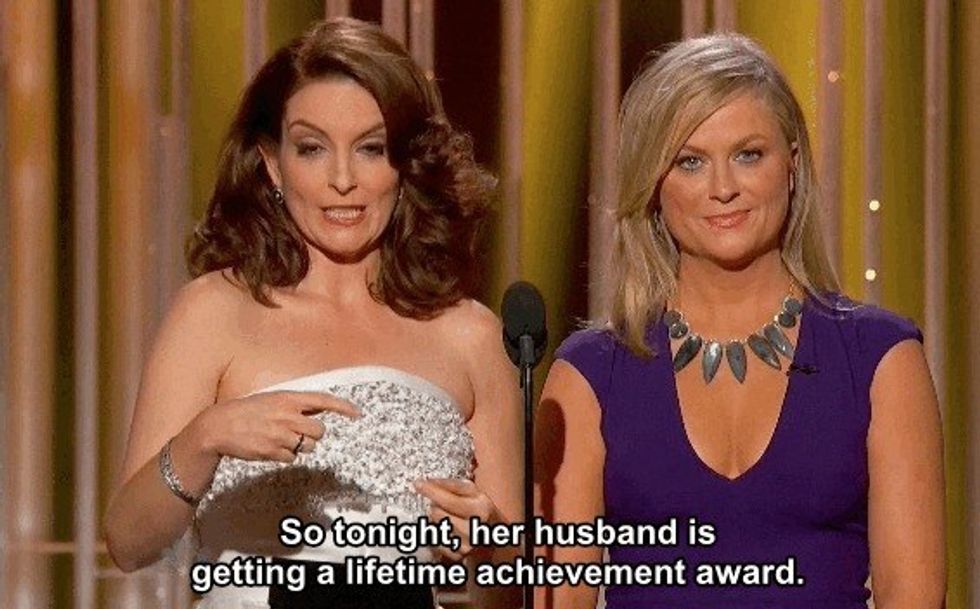When watching women on TV and in the news, a certain subject always creeps back up: Their clothing.
Whether they're an actress, politician or public figure, none seem to be immune to the questions:
What is she going to wear?
What is she wearing?
What message is her clothing choice sending?
For example, when Melania Trump travelled with her husband to France for the State dinner, headlines focused less on her responsibilities and actions and more on her styling choices. Headlines read, "First Lady Melania Trump Goes Full-On French in Chanel for First Trump State Dinner for France" (USA Today), "About THAT Hat Melania Trump Is Wearing" (CNN), or "The Latest: Mrs. Trump Wears Chanel Haute Couture to Dinner" (Washington Post).
Currently, the media is inexplicably focused on her wide-brimmed white hat.
This isn't the first time the media chose to place more emphasis on her clothes than her abilities. Her value in the eye of the public seems to partially revolve around her looks and clothing. Of course, every First Lady undergoes this scrutiny, regardless of political party, but this isn't about politics.
It's about the example we're setting.
Amal Clooney is an intelligent and capable lawyer who has successfully worked on high-profile cases. She's respected in her profession and positively impacts the world around her, yet the media celebrated how she succeeded in taming the forever-bachelor George Clooney and is always obsessed with what she's wearing.
When they got engaged, reporters would show up at the trial she was working to ask her who she was wearing, to which she jokingly responded with, "I'm wearing Ede & Ravenscroft," English legal robe-makers.
What are we telling young girls, much less ourselves, when our TVs tell us what we should look and act like? Think about it — the popular girls wear high-end clothing, yet vain and shallow women like to look and feel good. Where does the middle ground lie?
When men walk on the red carpet, they are typically asked about their career and current project. They're asked thought-provoking questions. When women walk on, one of the first questions they're asked is about who they're wearing. Oftentimes, they're asked about how they balance a personal life and a career, as if the two are mutually exclusive.
Women such as Amal are incredible role models, and there are many women like her. It really shows how far we have come. I don't like to sit around and victimize myself, thinking about what disadvantages I have because of my gender.
On the contrary, I avoid that kind of thinking — a lot of people can think of a disadvantage because of who they are. It doesn't do me much good to dwell on those, and I prefer to focus on moving forward.
Nonetheless, every woman at some time or another has had to work three times harder than the men around them in order to be noticed or respected beyond their physique or clothes.
Every woman, at some time or another, has had to deal with a school or work place telling them they can't wear something because it's too distracting for the men around them.
Whether we're being told we need to smile more, wear more or less clothing or look a certain way, all women need to know this: Be yourself. You don't have to change who you are or what you look like for fake ideal standards.
You can have a family and be successful.
You can be serious. You can be funny. You can be happy in your own way.
You don't need to consider men when you're deciding what to wear in the morning.
You can look beyond other women's clothing when they're in the media and figure out who they are beneath the surface.






















